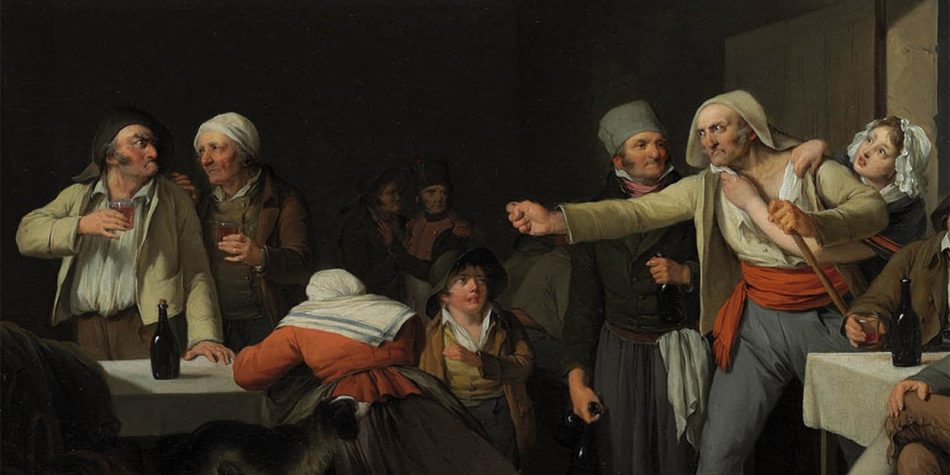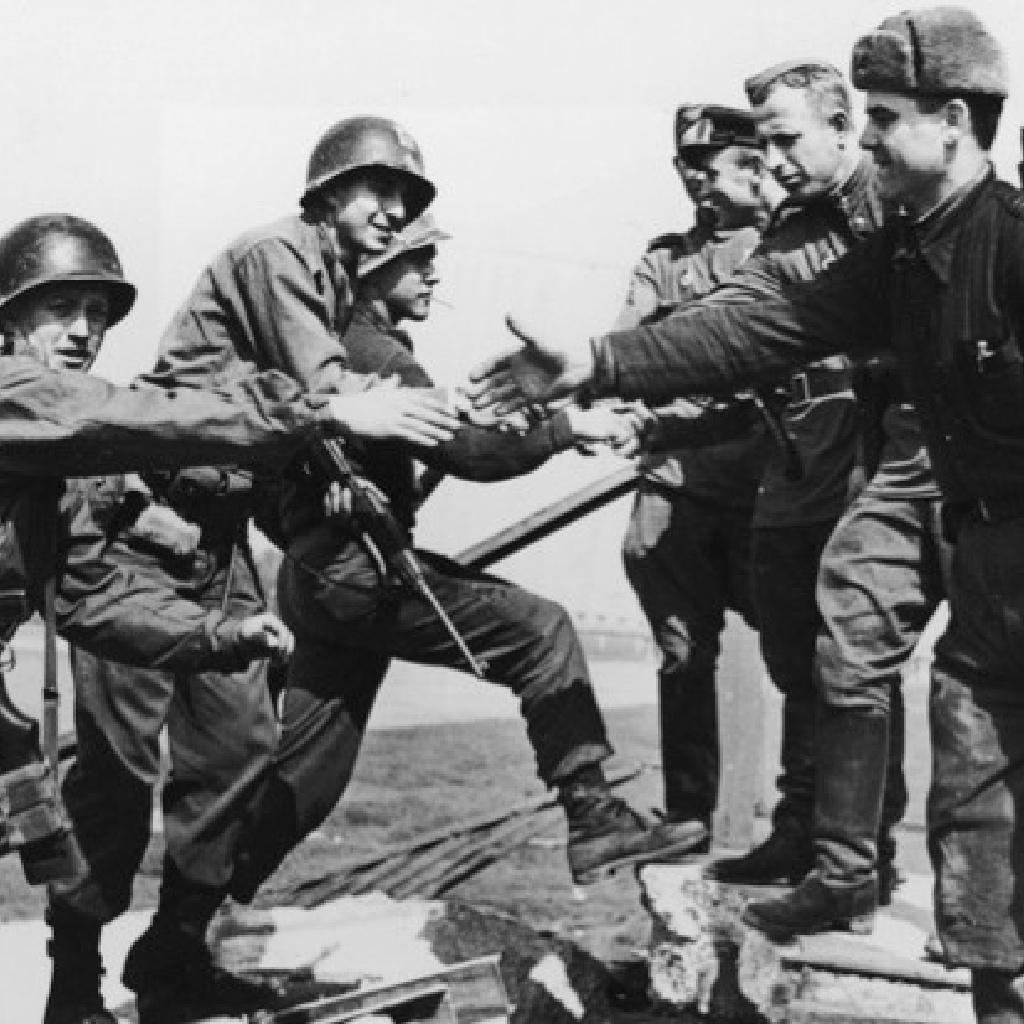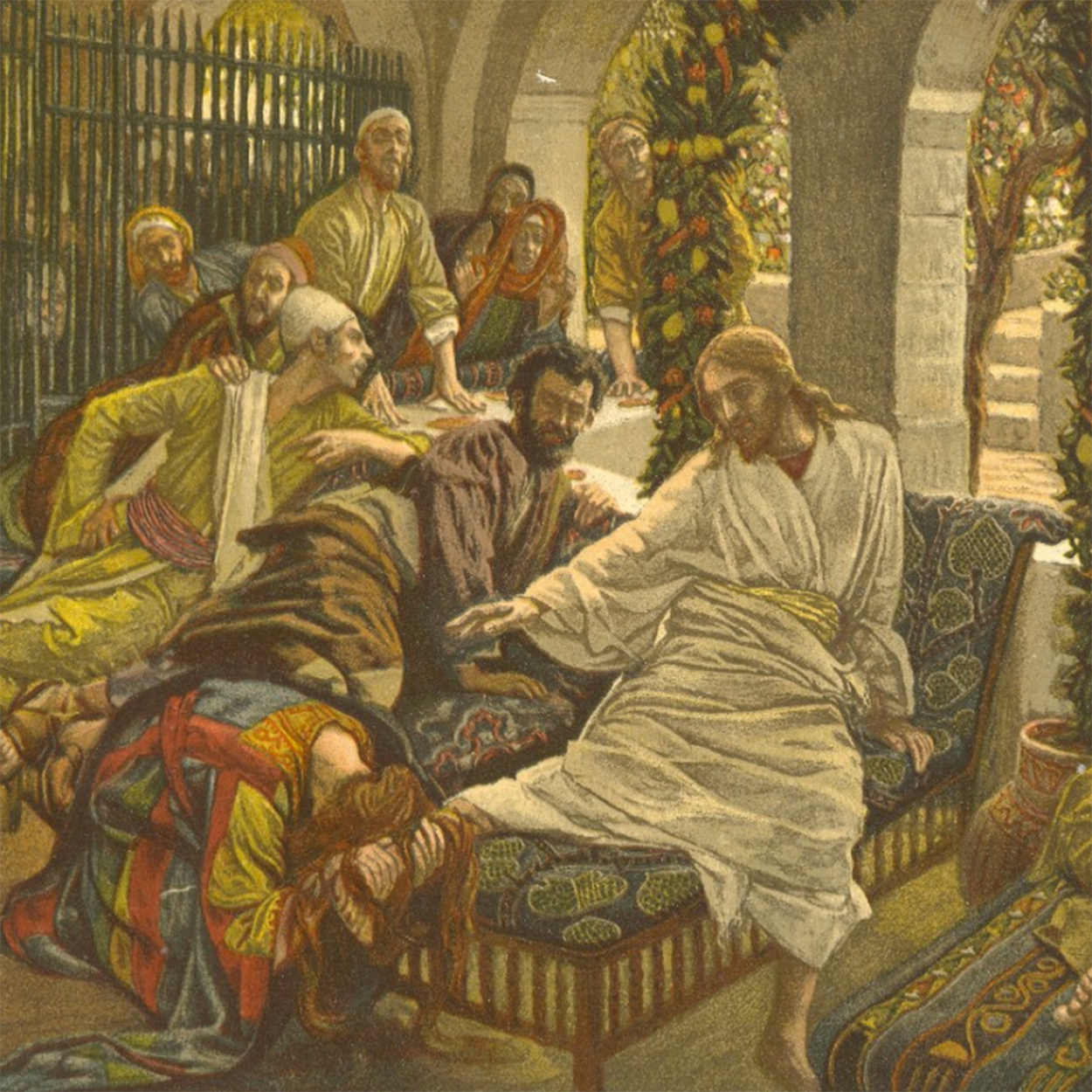A troubling thing has happened in America, a land built on the idea that a citizenry could self-govern together despite their differences. Several years ago, people took it as a laugh line to see at Jon Stewart’s Rally to Restore Sanity a placard that read, “I disagree with you, but I’m pretty sure you’re not Hitler.”

We’re not laughing about that anymore. People on both sides of the political spectrum take existing differences about a larger variety of matters with lethal seriousness: If you oppose my efforts to undermine capitalism or heteronormative institutions, you are a dangerous oppressor. If you attack my faith and family, you are a dangerous threat to America.
Similar threats have been felt across other more existential questions—from climate change to racial issues to the appropriate response to COVID-19. These are all deeply felt concerns—not to be minimized or made light of. Indeed, it’s partly a widespread sense of not being heard that has compounded our collective acrimony and alarm. At the same time, this pandemic pause seems an especially important time to push back on all of this—at least enough to consider ways in which all this fear and anger about various threats has become a threat in itself.
As soon as controversial remarks are made anywhere, we know what’s coming next: threats of violence
Indeed, suspicious and incendiary rhetoric more often than not decrease—not increase—our ability to be heard and advocate our concerns. This is not a dynamic specific to one group or another. It’s true across the political spectrum—with the number comparing Trump with Hitler in recent years at least as many of those who have suggested Stalinist aspirations for Sanders and the progressive left.
While political and ecclesiastic leaders receive a justifiably higher level of public scrutiny, even normal people speaking to some of the more explosive topics these days have increasingly come to expect just that: an explosive response.
Earlier this month, there was a controversy on BYU’s campus about the language in the honor code (a controversy that seems both remarkably distant and now almost quaint in light of pandemic and economic crises). In the wake of those events, prominent figures on both sides claimed to have received death threats—and to feel unsafe.
Any threat of physical violence like this is morally reprehensible. Even worse it’s what we’ve come to expect. As soon as controversial remarks are made anywhere, we know what’s coming next: threats of violence, from some dark corner online.
More often than not, these threats can also become further fodder to underscore the despicability of Those Other People: See, would you look at this! What more evidence do we need?
Once again, this is not to minimize the seriousness of these claims. Any such threats are literally deadly and should be forcefully condemned by all. Appropriate indignation and condemnation, however, may not be enough—with these incidents revealing even deeper questions about the state of the precious bonds between us.
In so many ways—and on so many levels—recent months (and years) have been a moral reckoning for the Land of the Free and the Home of the Brave (But a Little Shaky). Among the worthy questions on many hearts and minds these days, this basic one cannot be overlooked: What are we to do with Those People who see the world—reality, identity, sexuality, climate, God—different than we do? How are we to respond to them?
Are they The Enemy? Are they the primary reason for our pain and grief, and a visceral threat to our own well-being and happiness? Or is there another, legitimate way to make sense of this?
Alongside the many beautiful philosophical treatises on these questions, there’s a surprisingly concrete answer evident already in the lives of people all across America. Especially if you pay attention to one particular subset of people who are deep friends…despite deep disagreement.
As a way to inspire more Americans to re-embrace the virtues of generous disagreement, the Respect and Rebellion Project was recently launched by the Village Square—“a nervy bunch of liberals and conservatives who believe that disagreement and dialogue make for a good conversation, a good country, and a good time.” Over time, this effort (which includes our editor-in-chief, Jacob Hess) has aggregated stories and examples of friends who disagree deeply and vociferously. In addition to many living examples of normal people, they are gathering stories of these kinds of friendships throughout American history.
To read any of these accounts is to feel in your bones the message they embody: We can do this! Don’t forget this America—it’s all still worth fighting for.
And what is that? Unity and solidarity, certainly, deserve continued effort. But so also does the possibility of what Charles Randall Paul calls “trustworthy rivalry.” As tempting as it is to advocate for less discussion of deep difference, Arthur Brooks has argued it’s time for more and better of all the same, noting in a recent interview:
In our culture today, we far too readily assume that conflict and disagreement are harmful for us, emotionally and even physically. They’re not, of course—a competition of ideas improves outcomes, builds resiliency, and sharpens our thinking. But disagreement must be facilitated in the right way, with a spirit of warm-heartedness and an eye toward mutually shared ends. Leaders should take it upon themselves to encourage this kind of disagreement.
More and more people have grown weary of slash-and-burn discourse—and earnestly yearn to get back to a sense of solidarity.
In the absence of such encouragement (or such warm-heartedness), we are often left with the national equivalent of a marriage in trouble. Many know the feeling: underlying simmering tension that doesn’t seem to end, with any comments potentially provocative, however innocuous they may appear.
The truth is, once consumed with animosity, human beings need a lot of evidence to keep that going—like a fire that needs to be fed over, and over. Why?
Because in so many ways, anger is delusional—it can twist the mind to see things that aren’t there. And like C.T. Warner wrote wisely so many years ago, that gives us two options: either extricate ourselves from these dark emotions or distort the whole world to justify them.
Which will it be?
The answer in America today seems to be both. More and more people have grown weary of slash-and-burn discourse—and earnestly yearn to get back to a sense of solidarity and unity as a country. These are the people who see coronavirus as a chance to come together again as a people—and reconnect with what is most important.
No matter what lies ahead, let’s do this together.
And what of our decades’ long momentum towards hyper-partisanship and contempt? However covered up by fear and self-survival those impulses may be, no one is pretending they have vanished. Conditions of economic instability and emotional distress can bring out both the best— and the worst—in human beings. And they likely will for us as well.
However understandable and compelling some of the anger and frustration may continue to be, we are convinced the “better angels of our nature” can still make so many of these important questions workable—so much more than they seem.
No matter what lies ahead, let’s do this together. As one people, united—however else we may disagree on lots of important matters—by the deeper shared humanity and divinity within.
In the winter of 1777, George Washington had a vision of a future day in America when an “ill-omened spectre approached our land”—adding, “ It flitted slowly and heavily over every town and city of the latter. The inhabitants presently set themselves in battle array against each other.”
“As I continued looking,” he recounted, “I saw a bright angel on whose brow rested a crown of light on which was traced the word ‘Union.’ He was bearing the American flag. He placed the flag between the divided nation and said, ‘Remember, ye are brethren.’”
It’s time to do just that.

















